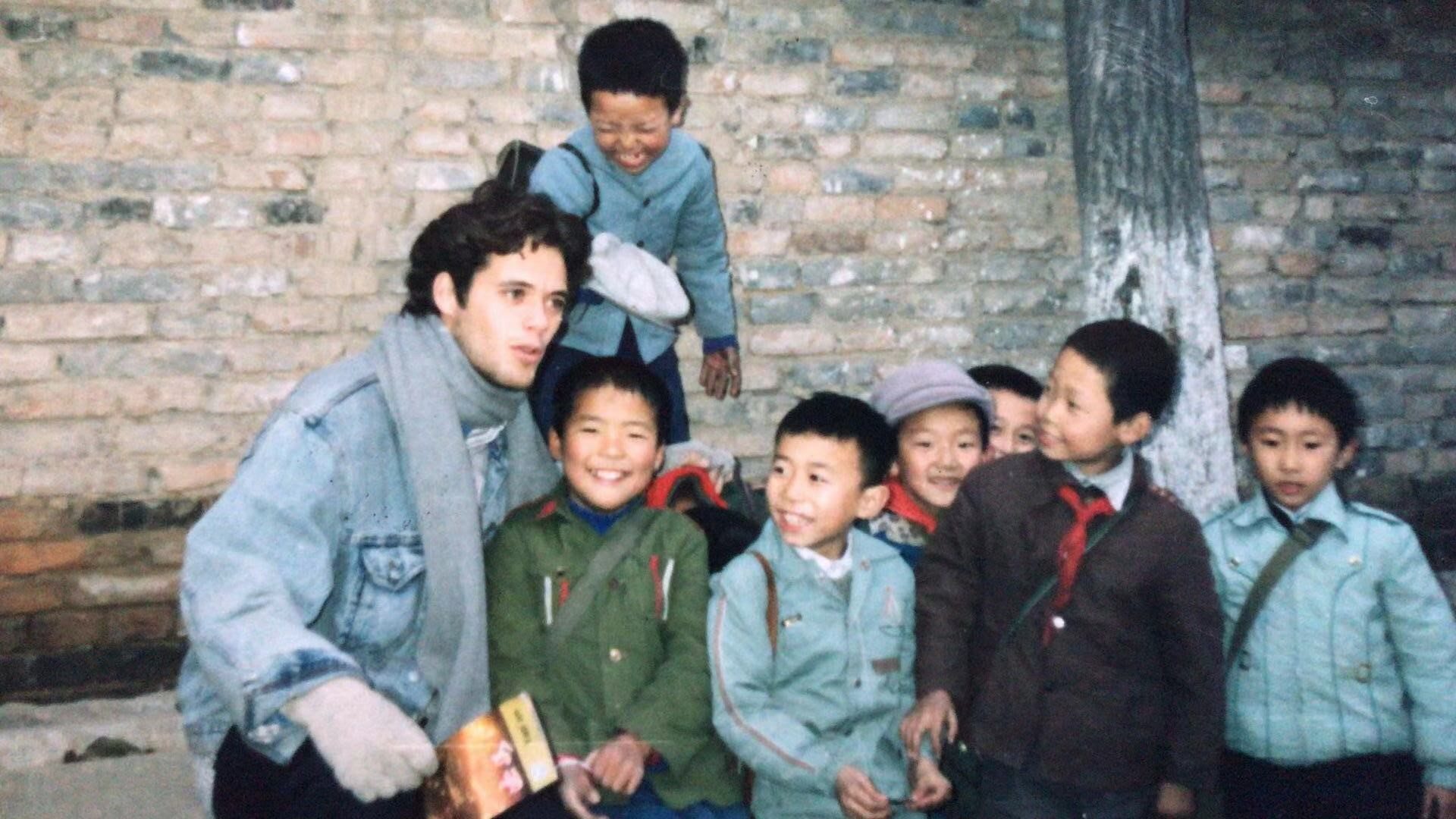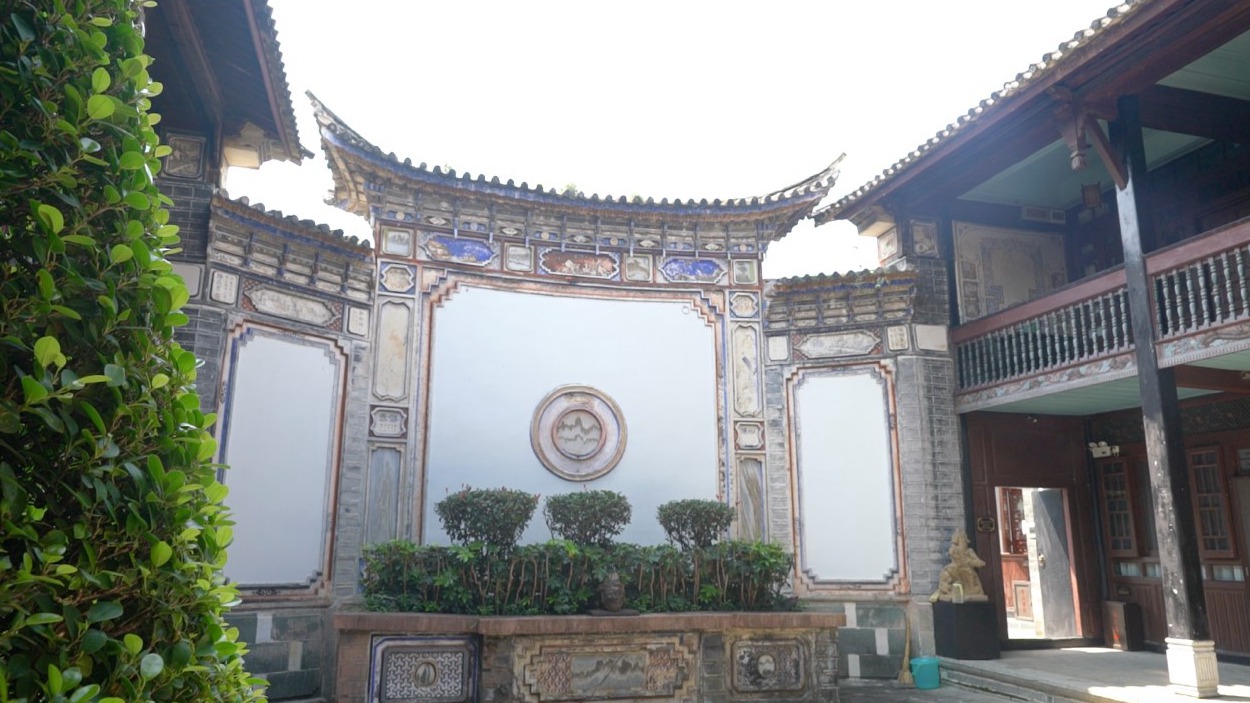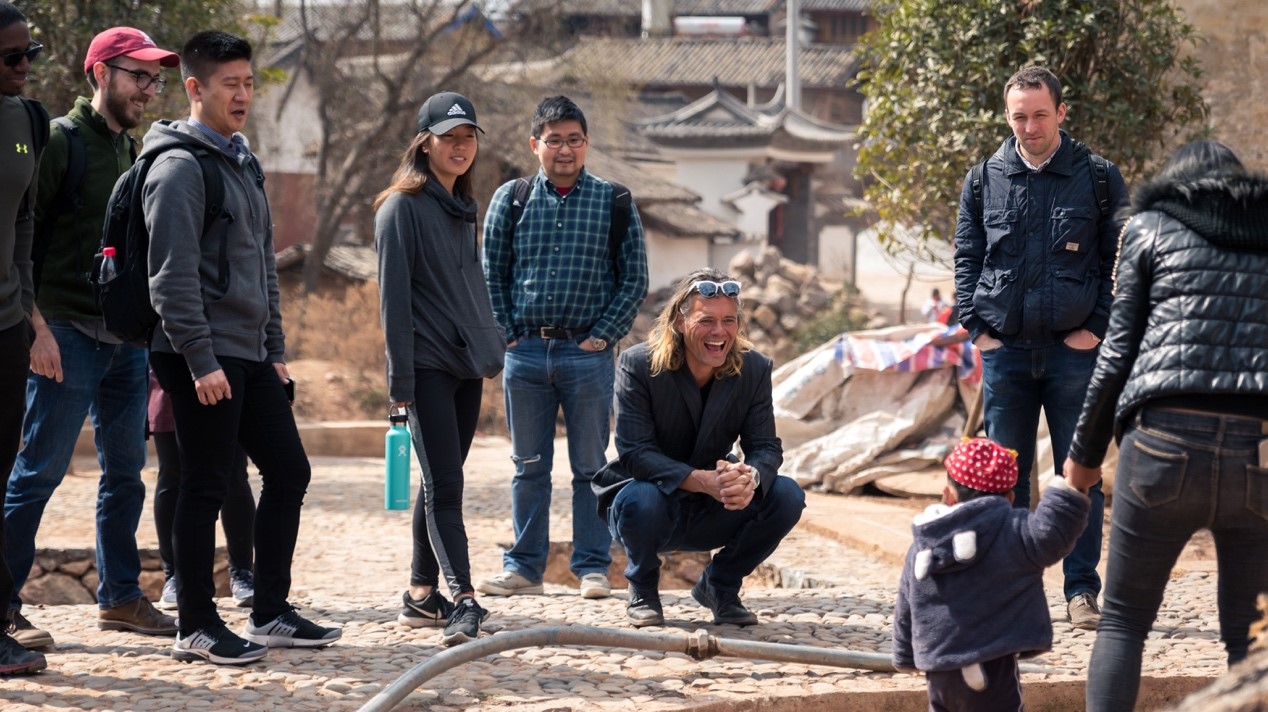03:48

Editor's Note: Tensions between China and the U.S. are at fever pitch as the U.S. presidential election nears. But for some, they are hoping people-to-people exchanges remain unaffected and are trying to promote them in their own way. CGTN reporter Yang Jinghao tells the story about American man Brian Linden from southwest China's Dali.
It's Brian Linden's daily routine as well as one of the most important agendas to interact with his guests from all over the world, telling them the stories behind the courtyard he is proud of and distinctive local traditions.
It's been 14 years since the man from the U.S. city of Chicago dwelled in a small town named Xizhou in southwest China's Dali, a popular city well known for its natural beauty and unique Bai ethnic culture, yet his affection for China keeps growing.
"I've been shaped by China in many ways. I was open to being reborn. I was open to being recreated. I think the country, the culture, and the people turned me into a better person," Linden told CGTN.
This courtyard-turned-hotel has become a landmark of the town, also a knot between Linden and China.
Linden first came to China in 1984 under a full-scholarship program provided by the Chinese government. Before that, he was a student at a community college in Chicago and a carpet cleaner for a professor.
Linden said it's just the professor who suggested he try his luck in China, as he just returned from China and sensed great potential from the country that just opened to the outside world.

Brian Linden stays with some Chinese children during his first stay in China in the 1980s. /Linden Center
Brian Linden stays with some Chinese children during his first stay in China in the 1980s. /Linden Center
"China gave the opportunity to me mainly because they felt I needed it more than any other student. They didn't choose the smartest student. If they had chosen the smartest student, they wouldn't have chosen me," said Linden.
Four years of stay in Beijing was an eye-opening experience for Linden. He was soon invited to act in a movie.
"Wow, you know I'm a carpet cleaner, I'm selling lady shoes in America. I come to China, and the second day I'm already making a movie. This place has so many opportunities, and the Chinese people are so gracious," he said.
He later worked for CBS's Beijing bureau as a cameraman, where he met heavyweights from various fields, including then Chinese leader Deng Xiaoping. Before he went to Stanford University for further study in 1988, he met his future wife in Nanjing city.
Looking back to the old days, Linden said he felt "so much optimism in China", which continues to date.
After spending some 10 years of time in different countries, Linden decided to return to China with his wife and two sons in 2004. Following a two-year exploration around China, they chose to settle down in Dali, getting attracted by a historic courtyard, which is also a nationally protected heritage site.
With the local government's support, they rented it and have it renovated by respecting its historical and cultural integrity while integrating modern functions and designs.

Part of the courtyard where Linden Center is situated. /Yang Jinghao, CGTN
Part of the courtyard where Linden Center is situated. /Yang Jinghao, CGTN
"This courtyard, for me, it represents an architectural masterpiece of humanity, not just of China. This is a beautiful compound. I think I wanted to put my efforts into it to ensure that our future generations can see some of the wisdom of our ancestors," Linden said.
For Linden, it's more than just a hotel. It's where people from different places can pay their respect to local culture while having various interactions.
"I believe the essence of travel is culture, is people, is challenging your own intellectual beliefs, not just floating in a bathtub," he said, noting that the tourism development in China was being directed by fashionable design and not necessarily indigenous culture.
In this complex constructed in the 1940s, about 50 percent is public space where people can visit and attend various activities.
"We are trying to bring people together and not just make it available to our guests,but make it available to the 3000 community members outside our front door," Linden explained.

Brian Linden talks to a local woman who works at the Linden Center. /Yang Jinghao, CGTN
Brian Linden talks to a local woman who works at the Linden Center. /Yang Jinghao, CGTN
With the idea of bridging culture and building community, the compound, known as Linden Center, has hosted a series of educational and cultural activities, attracting people from different countries and different backgrounds.
"What I think we should do is not to overlook the two million Bai people who have been here for 2000 years, but to realize that they are the core,they are the reason we should come to visit. We should make them the focus of our experiences here and hopefully ensure that they get the most benefits from our presence in their garden," said Linden.
During the past years, he has created another two complexes in Xizhou. These projects have also engaged many locals by providing them job opportunities.
A long-term supporter of China
Having stayed in China for a total of 20 years, Linden has witnessed the nation's rapid pace of development and the country's ups and downs with the U.S. The current tensions especially upset him.
"America is a better place because of these past forty years of interaction with China. China is a better place because of this interaction. Why are we trying to stop that?" said Linden.
"I am angry that America right now is taking its lead and thinking that no longer is a valid approach to our relationships between our two important countries. I am not going to take that. I am going to continue to promote the friendship that I believe is necessary and so easy between our countries."

Brian Linden participates in an activity with students from the U.S. in a village in Dali, Yunnan Province. /Linden Center
Brian Linden participates in an activity with students from the U.S. in a village in Dali, Yunnan Province. /Linden Center
Despite the frictions on the country level, Linden said he hopes the people-to-people exchanges can continue as usual and even prosper. He is now creating similar programs in different Chinese cities, though not without controversy.
"Some people in America are not so positive about what I'm doing. I get some negative feedback. People are saying that I am brainwashed or whatever. I am not going to be modest about my support of China. I am very proud of China. I have become a better person for it, and I think that China will make so much contribution to the world," he said.
Impacted by the COVID-19 pandemic, his courtyards have received much fewer guests this year, but he is not worried about it and remains optimistic.
Looking into the future, Linden said he would continue to be a "bridge", even though, in his own words, he's just a "little potato". He also hopes that China will continue to embrace the international community as it has done for past decades.
"What I would hope is China would more confidently go out there and be the gentleman, be the sage, be the wise man. Because right now, that wisdom isn't coming from America."
Cover photo: Brian Linden stays with local women of the Bai ethnic minority group. /Linden Center